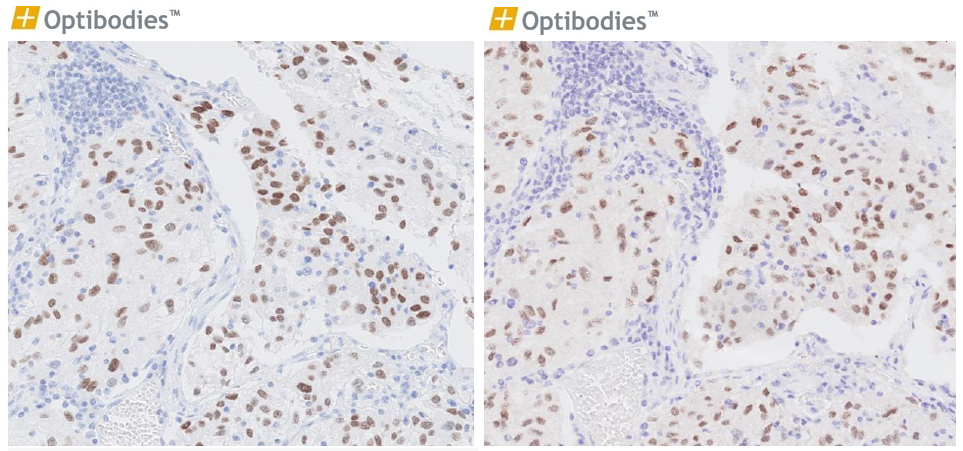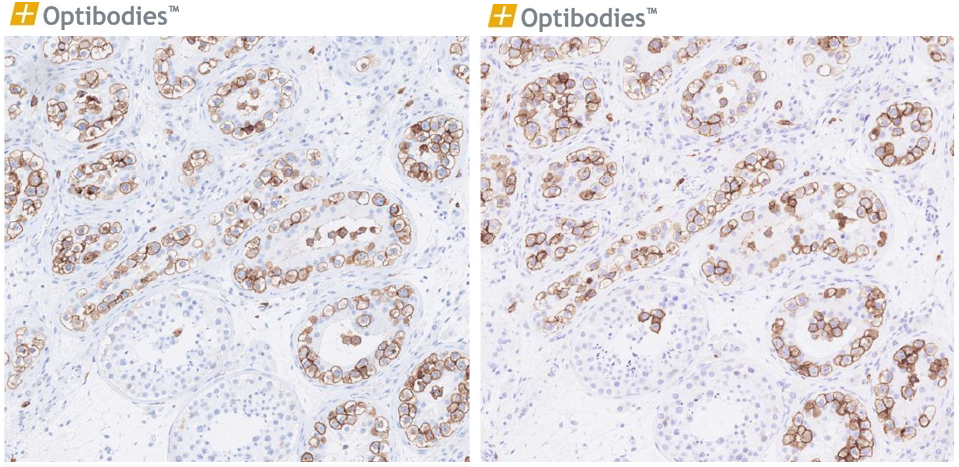Experience the high quality of our Optibodies™. Check out the images for our Sox10, Melan A and CD117, all CE/IVD marked for IHC. We have developed protocols for the most used automation platforms and the results look very good. If you want to test the antibodies in your lab please contact us and we can show more images, guide you to the protocol and have a sample available.
SOX10 (BS7)
This is one of our most popular Optibodies, it has excellent performance; sensitive and specific. In addition, optimal performance in the NordiQC ratings. SOX10 transcription factor belongs to the Sox-family of transcription factors involved in melanocytes and Schwann cell development and maintenance. SOX10 is expressed in virtually all cases of malignant melanoma, schwannoma, neurofibroma and granular cell tumours.
More info about SOX10 here!
Melan A (BS52)
The specificity and stain intensity are top quality. It is easy to optimize and BS52 does not stain adrenal gland. Melan A is one of the most valuable melanoma markers, it is associated with endoplasmic reticulum and melanosomes. Melan A is also found in other tumors of melanocytic origin such as clear cell sarcoma, melanotic neurofibroma and melanotic schwannoma.
More info about Melan A here!
CD117 (BSR24)
Excellent signal to noise ratio. Less prone to stain desmoid tumours, which should be negative for CD117. In addition, BSR24 does not stain smooth muscle cells. CD117 is of great importance for the classification of mesenchymal tumors of the gastrointestinal tract. CD117 antibody is used for especially GIST tumor classification and for classification of germinal cell tumors.
More info about CD177 here!
Want more information?
You are welcome to contact us. We can show more images and guide you to the right automation protocol.


